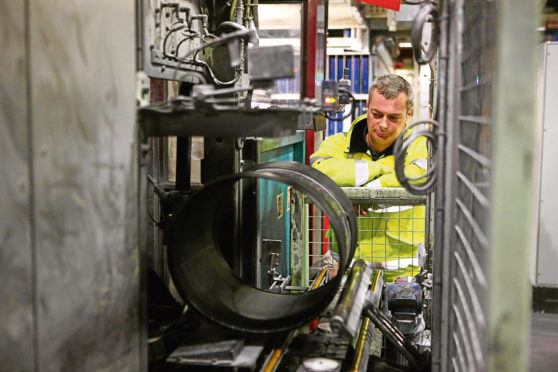A fall in demand for Michelin tyres led to negotiations with its Dundee employees to protect jobs.
Dundee factory personnel manager Donald Mackenzie said “increased market volatility” had led to reduced demand at several of the firm’s European factories.
In anticipation of the reduction in production volume, the Dundee Michelin management team and the union Unite collaborated on new workplace flexibility arrangements.
A series of measures were agreed to handle the reduction in production while limiting the effect on jobs.
These include an enhanced level of reactivity to changes in demand, improving the precision of customer supply depending on the market needs and giving a higher level of guaranteed income to its flexible employees.
As well as these changes to terms and conditions Michelin have also agreed a 2.5% pay increase with UNITE for this year.
Mr Mackenzie said this change means the plant can absorb reductions in staff through natural turnover.
He said: “We need to continually evolve to be a competitive factory on the world stage.
“These recent changes are another example of how we work with our workforce and unions to overcome real business problems.
“We have an excellent workforce. They are engaged in this business, and they want to see it being a success for themselves, their families and for the wider Dundee community.”
He added that an investment programme for the Dundee plant, which started in 2015, is unaffected with new machinery and technology to be installed this year.
Last June First Minister Nicola Sturgeon visited Michelin to announce a £16.5 million upgrade to the site, with more than a quarter of the cash coming from public funds.
At the time factory manager said it was the latest in a series of cash injections that will increase the lifetime of the plant, and the hundreds of jobs there, for years to come.
The tyre manufacturer — which employs a total of 860 full-time staff —received a £4.5m environmental protection grant from Scottish Enterprise as part of the investment.
It is hoped the more environmentally friendly way of producing tyres will reduce emissions at the factory by 7,140 tonnes a year.
